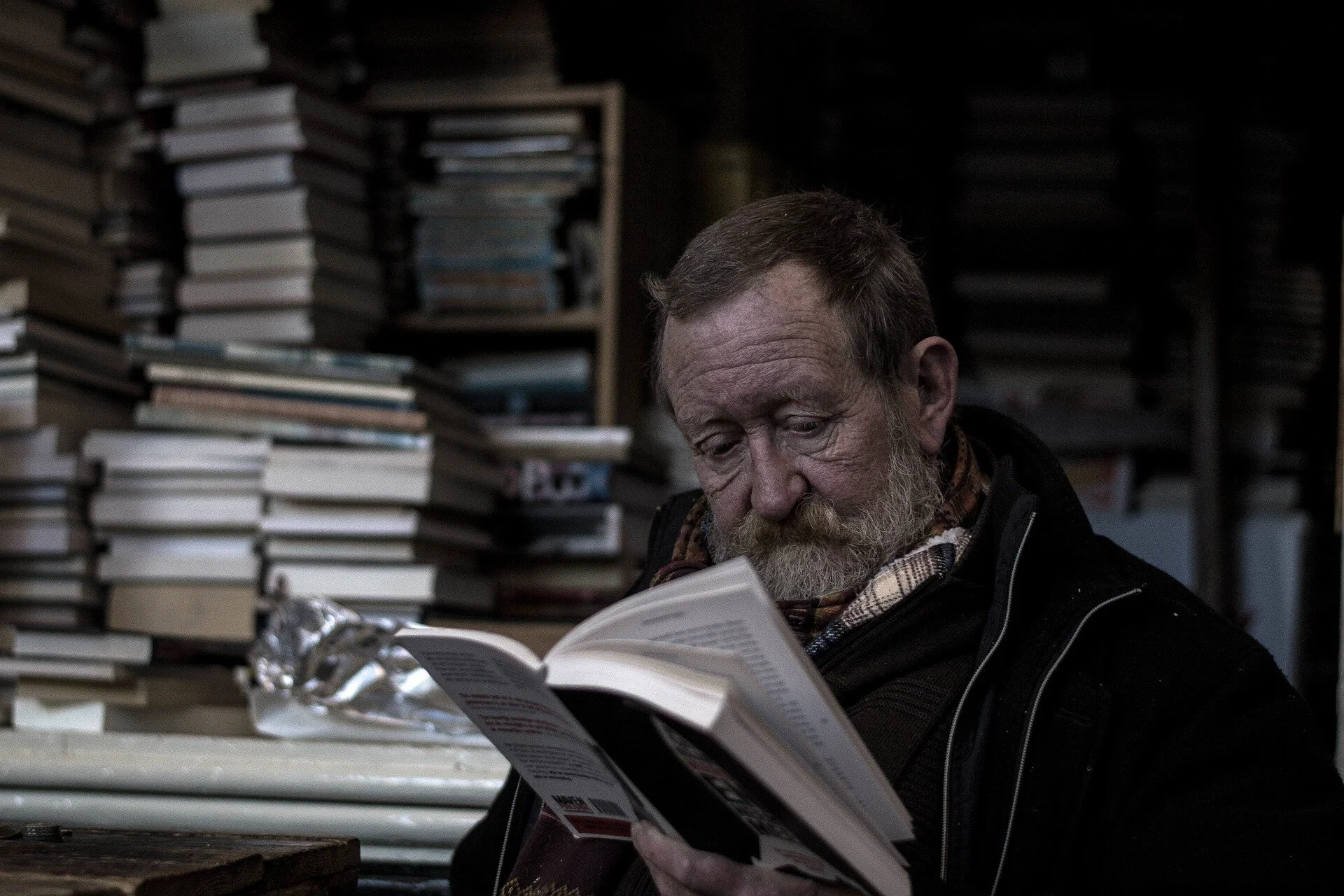Faith Topics: Why is it Necessary to Study the Bible?
Let’s face it, life is busy, especially if you are working, have children, or are involved in any sort of activities outside the home. People just have a lot to do these days. If I am a Christian and believe in eternal security (once saved, always saved) what’s the point of studying the Bible? Isn’t it enough to hear it on Sunday morning? Isn’t reading it once in a while more than sufficient to keep me grounded in my Christian faith?
Image by wal_172619 from Pixabay
There are several thoughts I have on this topic and I think it is an important issue to address. Let’s start by looking at what scripture itself has to say.
“16 All Scripture is inspired by God and profitable for teaching, for reproof, for correction, for training in righteousness; 17 so that the man of God may be adequate, equipped for every good work.”
This verse gives us several good reasons to study God’s word.
1 - All of Scripture is inspired by God.
If you were interested in learning more about a certain historical figure, Hollywood star or famous pop singer would you go to the Tabloids or would you want to go to the direct source? An autobiography is going to be more revealing about a person than a few short paragraphs about where they were last seen and who they were last hanging out with. If we claim to be Christians and want to live a Christ like life then the place to go is the Word of God to receive information that is most accurate and truthful. God, Himself, inspired the men who wrote the words. I believe this is the most accurate historical document we have.
2 - All of Scripture is profitable for teaching, reproof, correction, and for training in righteousness.
Image by Dolf Maurer from Pixabay
Think about this for a minute. If you read a magazine, a textbook, or a fictional piece, each one may give you some sort of benefit. You might learn how to cook a certain dish from a recipe book. You might learn more about what vitamins to take as you age from a magazine on aging. You might find yourself swept away by a riveting adventure which helps you relax. However, unlike the Bible most things we read are not able to do everything the Bible can do.
The Bible is a historical account of the Nation of Israel, giving us a history lesson. The Bible is a book of poetry and love. The Bible gives us steps to ease anxiety, love our neighbor, and forgive those who have hurt us. The Bible teaches us how to live, how to love and how to have a relationship with an amazing God.
3 - All Scripture enables us to be adequate and equipped for every good work.
Image by free stock photos from www.picjumbo.com from Pixabay
You know what I like most about that last phrase? The word adequate. It doesn’t tell us that we will be perfect. It doesn’t say we will be all knowing, powerful, or rich. It says we will be adequate. Webster’s Online Dictionary defines the word adequate as: Sufficient for a specific need or requirement; good enough. God gives us what we need when we need it. He doesn’t give us more. Why do you think this is? It might have something to do with humility and dependence.
Our ability to be equipped for every good work, isn’t dependent on our ability. It is dependent on God. This fact takes us back to the first two points…it’s all from Him, and it is meant for teaching, correction, training, etc. We have to be continuing to learn and study and grow.
Another familiar verse in the Bible about why we should study it is the following:
“Study to shew thyself approved unto God, a workman that needeth not to be ashamed, rightly dividing the word of truth.”
I went for the King James Version of this verse, as it is the verse I remember growing up with. It is one of the few versions that uses the word study and links it to the ability to understand accurately what God’s word is saying. We don’t need to be ashamed if we know God’s word, what it says and what it means. If we look at the New American Standard version, it reads a little differently, but the end result is still the same. We are to be diligent workmen, who don’t need to be ashamed, because we know how to handle God’s word.
“Be diligent to present yourself approved to God as a workman who does not need to be ashamed, accurately handling the word of truth.”
If we just look at this one verse we can come up with several more reasons we should study God’s Word.
1 - To be able to present ourselves to God.
Accepting Jesus as our Lord and Savior is merely the first step in a life time of growth and knowledge as we get to know Him more and more. Not only are we getting to know Him better, but He is making us more like Christ. When we know His word, we can bring that to Him and show that we know Him and His desires for us. Knowing and studying His word is like giving a gift back to him. We are saying that we agree with what He has said.
2 - To be an unashamed workman.
Often what makes us feel ashamed in our Christian walk, is not what Jesus has done for us, or our belief in Him, but our inability to talk about those things. I believe one of the important ways we become better able to talk about our faith and defend it is by knowing what the Bible says. Regular study of the Word helps us to walk with Him without feeling unable to share our faith.
3 - To be able to accurately handle truth.
Image by Markus Winkler from Pixabay
Regular study of God’s word will not only make us more confident, but will enable us to know what is true and what is untrue. There are many who believe the Bible is just another book. They might even acknowledge that it has historical significance, but they do not believe everything in it to be true. They argue that everything from creation and the flood, to the virgin birth and resurrection were just fabrications put together by a random string of zealots to lead people into some sort of cult like living. The problem with many of these supposed arguments is that they really don’t take into account the actual words of the scriptures. A question both my husband and I ask people who say they don’t believe is, “Have you ever read the book?” Most often the answer is, “No.”
Let’s not depend on the world to tell us whether to believe the Bible or not. Let’s allow the Holy Spirit to do what He is best at, revealing the truth in the living, God breathed, words of Scripture. Paul admonished us in the book of Colossians:
“8 See to it that no one takes you captive through philosophy and empty deception, according to the tradition of men, according to the elementary principles of the world, rather than according to Christ. ”
Paul also instructed Timothy about not listening to the “irreverent babble”.
“20 O Timothy, guard what has been entrusted to you, avoiding worldly and empty chatter and the opposing arguments of what is falsely called “knowledge”—
21 which some have professed and thus gone astray from the faith.”
I hope this gives you a little motivation to start looking at the Scriptures with more time and care, for in studying His Word we will be blessed with a deeper relationship with Him.





































